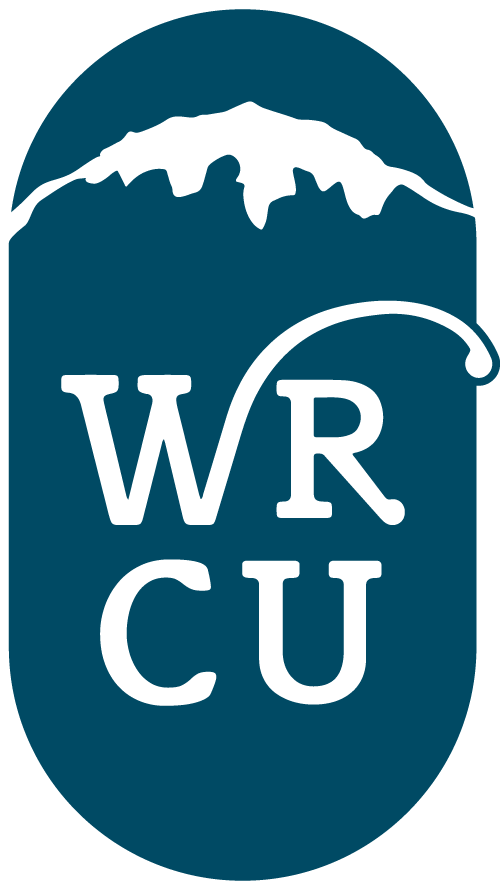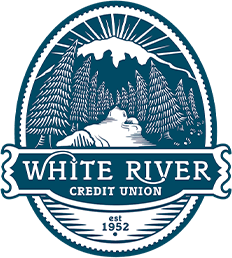
Graduating from college is a huge cause for celebration! After years of hard work, you now get to head out into the world, pursue your dreams, and make big decisions to push towards accomplishing life goals. Many post-graduate decisions need solid financial literacy to succeed. Decisions like renting an apartment, taking out a loan, or even deciding how much to save per month mean making smart, long-term money decisions. At White River Credit Union, we provide solid financial advice for young adults so they can thrive after college. Below, we’ve shared the top four pieces of financial advice for recently graduated college students so you can invest in your future success.
Get a Savings Account ASAP
Saving is one of the best ways to set yourself up for financial success. The more you save now, the more you invest in your future. It’s good practice to aim for putting 20% of your paycheck towards savings and investments. To start your savings journey, you can set up a personal savings account with your local credit union. Traditional or regular savings accounts are easy to set up and allow you to earn interest on your money as you save. At WRCU, our classic savings package is best for people just starting their banking journey who need to save money for both the short and long term.
If you want to get the most out of your interest rate quicker, you may want to consider a premium savings package, like the ones we offer at WRCU. These accounts offer checking with interest, and let members earn more with their money without tying it up in a long-term investment. If you need help deciding which savings account fits your needs the best, contact us at https://whiterivercu.com/contact-us/ for financial advice tailored to your needs.
Make a Plan for Paying off Student Loans
According to U.S. News, the average college graduate has around $30,000 in student loan debt. Student loans gain interest over time, so it’s important to create a plan to pay off student loan debt as soon as possible. To create a plan, you should look at your budget and determine how much of your income can be allocated towards debt payments. If there is extra money in the budget, trying the avalanche method for paying off debt might be a good idea. The avalanche method means paying off the debt with the highest interest rates first, then working down to the debt with lower interest rates. If you have student loans with high-interest rates, you may want to consider refinancing them to get a lower APR (Annual Percentage Rate).
Choose Your Loans Wisely
After college, you may be looking to buy a car, travel, or even start the business of your dreams. To do this, you will need to take out a loan. Borrowing large sums of money can be nerve-wracking straight out of college, so choose your loans wisely. Always investigate the source you acquire a loan from to see if their estimated APR, repayment terms, and monthly payments are feasible for you. Also, knowing where your credit stands can help you know which loans you qualify for. Credit unions often offer better rates and fees for loans than the average bank, so do your research before choosing a loan. At WRCU, we offer options for personal and business loans, whether you are buying your first home, investing in recreational equipment, or turning your side hustle into a business.
Start Saving for Retirement
Retirement may seem like a long way down the road, but saving for it now versus later can mean the difference between retiring early or not being able to retire comfortably. Investing early can make all the difference in having hundreds of thousands of dollars more when you retire, even if you ultimately invested the same amount— all due to the power of compounding interest. If your employer doesn’t offer a 401(k) or another type of retirement plan, you can open a traditional individual retirement account (IRA) or a Roth IRA. These retirement accounts let you invest in stocks, bonds, mutual funds, and a variety of other financial assets. There are distinct differences between the two, so read on to learn which one may be best for your situation.
Roth IRA vs Normal IRA
The primary difference between a Roth IRA and a traditional IRA is when you pay income taxes on the money you put into the plan. For Roth IRAs, you pay taxes on the front end and no taxes on the back end when you withdraw the money in retirement. With a traditional IRA, it’s the complete opposite: you pay the taxes on the back end, which is when you withdraw the money in retirement.
Who Can Open an IRA and Roth IRA?
Almost anyone can open and contribute to a traditional IRA if you or your spouse receive taxable income and you are under the age of 70 ½. For a Roth IRA, you must meet a certain income requirement in order to make contributions. The contributions are never tax-deductible. For customized financial advice on which option may be the best for your financial situation, reach out to our team today.
If you have questions about investment services, how to open an IRA, or what savings method might be best for your financial situation, contact our team at White River Credit Union. Our mission is to set members up for success at every stage of life, so we provide the best financial tools to help you do so. To learn more about how our financial advice can help you on your post-college journey, give us a call at (360) 825-4833.



